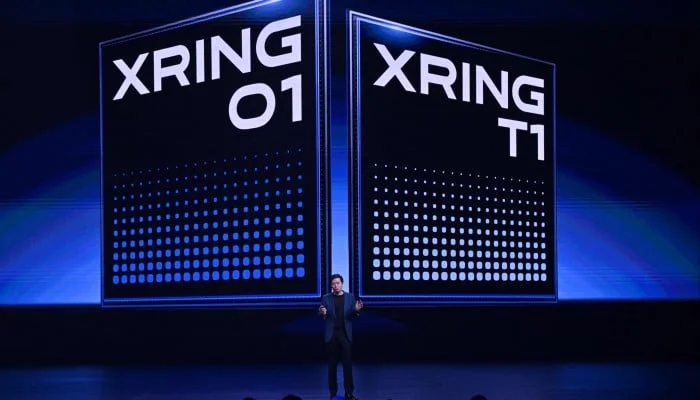
Xiaomi’s Chip Ambition: Taking on Apple and Tesla with Custom Silicon and Ambitious Plans
Xiaomi is aggressively expanding its tech footprint, setting its sights on competing with industry giants like Apple and Tesla. The Chinese tech powerhouse is making significant strides in custom silicon development and electric vehicles, signaling a shift from a primarily phone-focused company to a broader tech player.
The company recently unveiled its Xring O1 chip, a homegrown SoC (System on Chip) designed to rival Apple's A-series processors. Lei Jun, Xiaomi's CEO, boldly claimed that the Xring O1 outperforms Apple's A18 Pro in crucial areas such as thermal performance during gaming. This chip, a product of four years and $1.87 billion of R&D investment, is already in mass production using the same 3nm process technology as Apple's flagship.

The Xring O1 currently powers the Xiaomi 15S Pro and Pad 7 Ultra, both positioned in the premium segment. However, Xiaomi's ambitions extend beyond flagship devices. According to Lu Weibing, a Xiaomi partner, the company plans to extend its custom chip development to more affordable smartphone lineups in the future. This strategy mirrors Apple's approach but also sets the stage for increased competition across various price points.
Xiaomi isn’t stopping at processors but also aims to develop its own 5G modem, similar to Apple's C1 5G baseband chip. While the timeline for this project remains unclear, Xiaomi is committed to pursuing this goal in the long term. @SKundojjala posted a statement on X from Lu Weibing:
"Xiaomi gives itself 5-10 years to achieve reasonable financial model with smartphone chips. XRING's initial focus is flagship only and Xiaomi will look into developing multi-mode 5G chips in the future"
On the automotive front, Xiaomi continues to challenge Tesla. Following the launch of the SU7 sedan, priced significantly lower than the Tesla Model 3, the company is gearing up to release the YU7 SUV in July. While pricing details are still under wraps, the YU7 will feature chips from Qualcomm and Nvidia, advanced driver-assist systems, and a range of up to 835 km.
While early days, the development of the XRING O1 marks a significant milestone as revealed by Steve Raphael, Senior Director, Smartphone Segment Strategy and Go-to-Market, Arm:
"The introduction of XRING O1 is a significant milestone for Xiaomi to deliver advanced technology innovation."

With a pledge of 200 billion yuan in R&D through 2031, Xiaomi is signaling its commitment to innovation and long-term growth in the competitive tech landscape.
Will Xiaomi succeed in its ambitious quest to rival Apple and Tesla? What impact will Xiaomi's expansion have on the broader tech industry? Share your thoughts in the comments below!